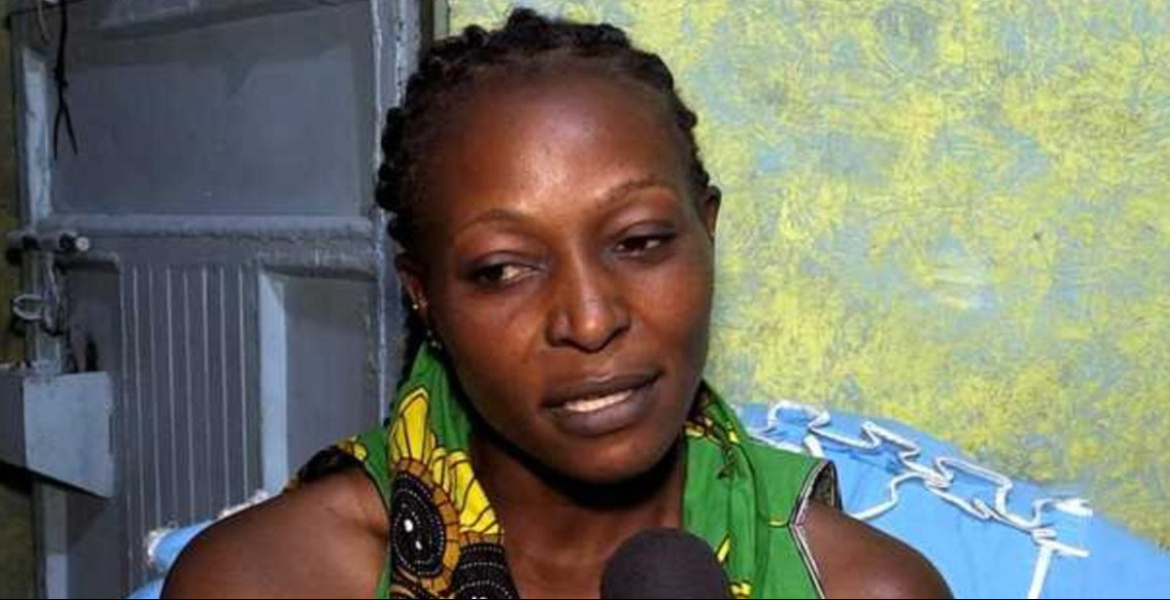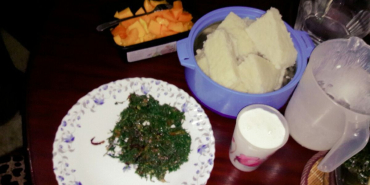Kenyan Widowhood Rituals Under Fire

A brutal assault on a Kenyan widow, Mellen Mogaka, purportedly enforcing cultural traditions, has ignited national outrage and reignited discussions about gender-based violence and cultural oppression in Kenya.
Video footage of the attack, which quickly went viral, has drawn condemnation from leaders, gender rights advocates, and legal bodies, who decry the incident as a gross violation of fundamental human rights. The attack highlights deeply entrenched traditions that perpetuate gender-based oppression, often disguised as customary rites. Authorities and activists are calling for stronger legal frameworks to protect widows from discrimination and abuse.
The incident occurred as Mogaka was reportedly forced to comply with burial rituals dictated by the Abagusii community. These rituals require widows to perform ceremonial acts, including pouring soil onto their deceased spouse's grave. Critics have denounced the violent enforcement of these customs as archaic and abusive. The release of the video footage sparked immediate condemnation from prominent leaders and organisations.
Migori Woman Representative Fatuma Zainab criticised the local church for its inaction during the widow's humiliation, arguing that such incidents reflect a grim reality for women in Kenya. Zainab emphasised that the failure to protect widows from such violations reinforces the perception that they are lesser members of society, lacking effective legal protection from cultural discrimination.
"The question we should all ask is whether these men would tolerate their wives or daughters being treated in this manner," Zainab stated, underscoring the hypocrisy inherent in such practices. "Culture should uphold dignity, not serve as a vehicle for oppression."
The National Gender and Equality Commission (NGEC) also condemned the assault as a violation of constitutional rights, particularly Article 27, which guarantees equality and protection from discrimination. In a statement, the NGEC noted that such incidents are clear manifestations of gender-based violence, disguised as cultural obligations. The commission urged stakeholders to prioritise the elimination of such traditions, emphasising that no practice should supersede an individual’s dignity and autonomy.
Legal Proceedings and Systemic Concerns
Authorities have apprehended seven men in connection with the assault. They have been charged with offences under the Prevention of Torture Act of 2017, accused of unlawfully detaining, roughing up, and mistreating Mogaka. The suspects appeared before Nyamira Chief Magistrate Bernard Ondego, denied the charges, and were released on bail. The court set a bond of KSh100,000, with an alternative bail option of KSh50,000 per individual, and scheduled a mention of the case for later in the month.
While the legal process has begun, gender rights activists argue that punitive measures alone are insufficient to deter such violations. Diana Kamande, the executive director of Come Together Widows and Orphans Organisation, highlights the broader issue of systemic discrimination against widows in Kenya. Kamande notes that while Mogaka's case has garnered significant attention, thousands of widows across the country suffer in silence, subjected to harmful traditional rites that strip them of their dignity and economic independence.
Harmful Widowhood Practices
Widows in Kenya face a range of discriminatory practices deeply ingrained in certain communities. These include property disinheritance, forced cleansing rituals, and ostracisation. One of the most egregious practices is widow cleansing, where a woman is compelled to have unprotected sexual intercourse with a designated “cleanser.” Purportedly intended to rid the widow of bad omens, this ritual exposes women to severe health risks, including sexually transmitted infections, and exacerbates psychological trauma.
In addition to the physical and emotional toll of such customs, widows also contend with economic marginalisation. Many are stripped of property rights, often finding themselves displaced or forced into poverty due to inheritance laws that favour male relatives. Kamande argues that existing legal structures, including the Law of Succession Act, fail to adequately protect widows, particularly those reliant on communal land, which remains exempt from legal provisions governing inheritance.
Calls for Legislative Reform and Economic Empowerment
Gender rights organisations and policy advocates are pushing for urgent legal reforms to address the plight of widows. Kamande and other stakeholders argue that Kenya needs a robust legal framework specifically tailored to widows’ needs. Strengthening property rights and inheritance laws would be a step forward, ensuring widows have the ability to sustain themselves economically.
Activists are also advocating for the revival of economic empowerment programs such as the Thamini Mjane Loan initiative, aimed at supporting widowed women financially. Programs like the Women Enterprise Fund could provide widows with access to financial aid and business opportunities, helping them achieve financial independence and avoid the stigma associated with widowhood.
While culture plays a significant role in shaping identities and community values, the line must be drawn where traditions infringe upon human rights and dignity. Advocates argue that gender-based oppression disguised as culture must be uprooted through education, legal reform, and shifts in societal attitudes.








Add new comment